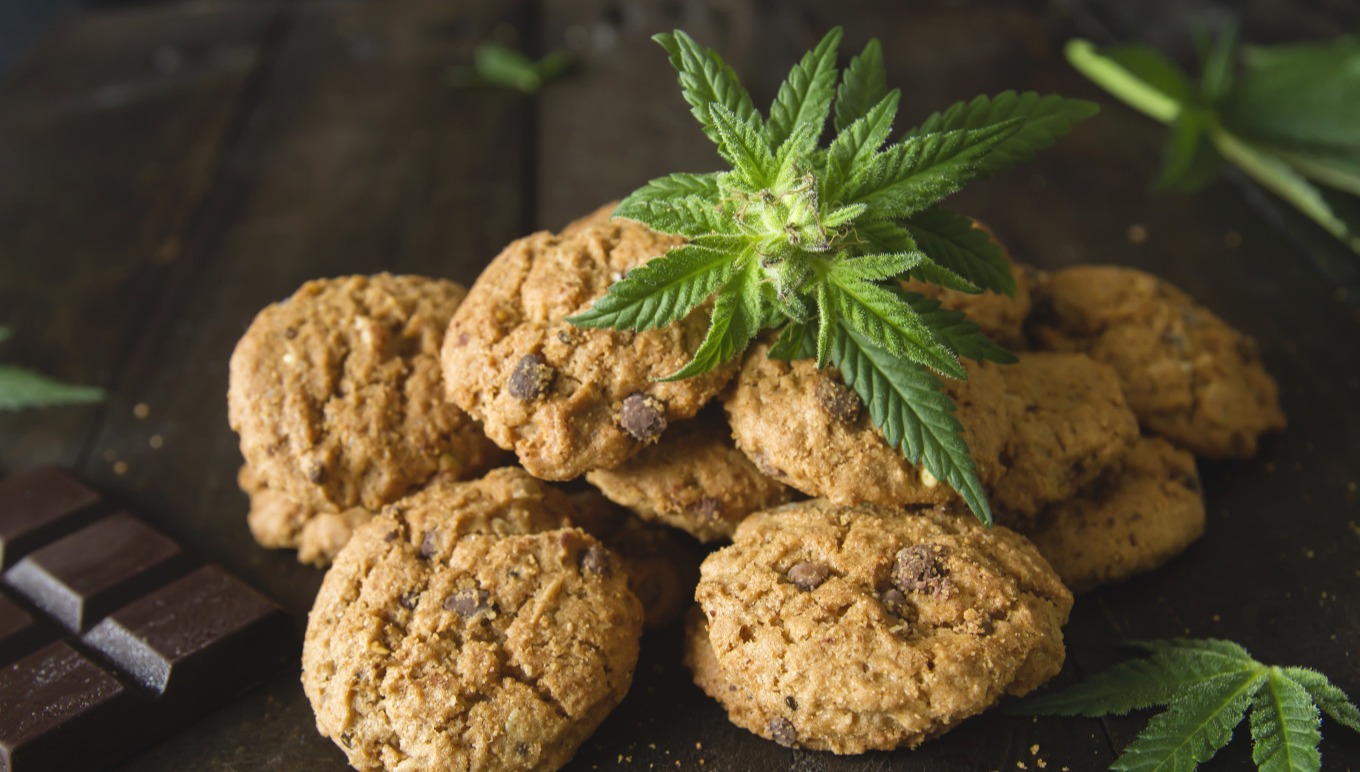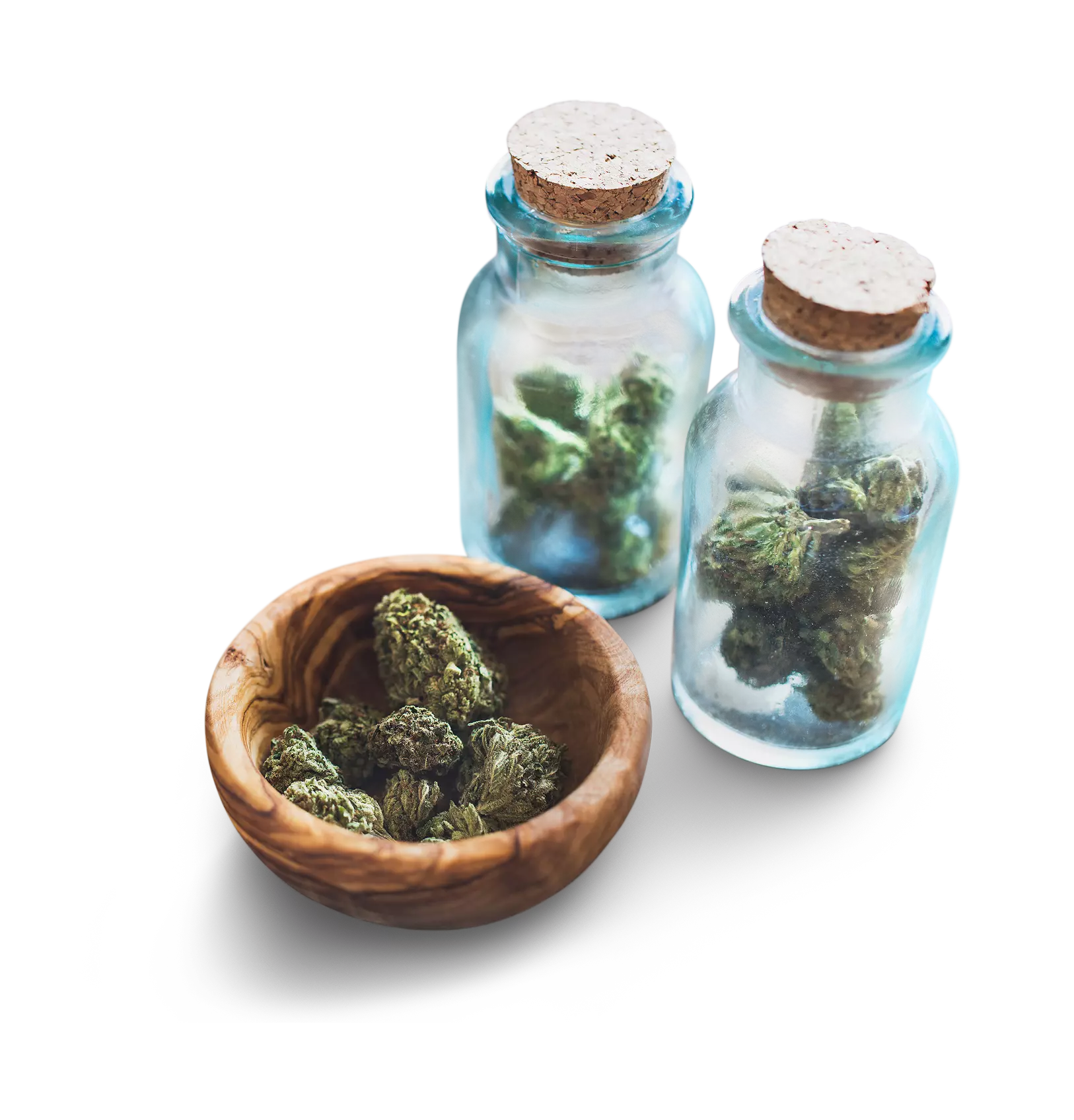CBD Product Diversity is Creating Scale-Up Opportunities for Cannabis Manufacturers
CBD Product Diversity is Creating Scale-Up Opportunities for Cannabis Manufacturers
CBD Product Diversity is Creating Scale-Up Opportunities for Cannabis Manufacturers
6 Ago 2021
 Daniel Erickson | Senior Product Manager
Daniel Erickson | Senior Product Manager
The legal cannabis market is a major growth area for process manufacturers, and it’s being driven by CBD.
The CBD industry was valued at $2.8 billion in 2020 and sales are expected to grow at a CAGR of 21.2% over the next seven years, as companies develop new products containing cannabidiol.
Innovation in CBD isn’t just giving more choice to consumers; it’s creating new revenue-driving potential for process manufacturers. As hemp-based CBD is added to everything from hair conditioner to coffee, manufacturing businesses have an opportunity to scale-up production capabilities to meet diversifying demands.
The Rise of CBD as a Lifestyle Product
The availability of CBD as a separate substance isn’t new; it was first isolated in the 1940s by chemist Roger Adams and has been recognized as providing therapeutic benefits since the 1970s. However, medical marijuana wasn’t legalized in the U.S. until the 1990s—and it’s taken more than two decades for public opinion to come round to CBD being a safe, regulated ingredient for recreational and healthcare use.
Today, 86% of consumers are familiar with the term CBD and 1 in 5 people have used products containing cannabidiol, according to research by New Frontier Data. Interestingly, among those who have tried it, 60% use CBD to relax, unwind and de-stress, rather than to treat an existing medical condition.
The shift from alternative treatment to lifestyle product is helping to drive the diversification of CBD products. There are now thousands of branded options available to consumers—from oils, balms, capsules and liquids, to topical skincare, gummies, infused beverages and haircare products. All of which present an interesting business growth opportunity for process manufacturers.
New Category Opportunities for CBD Manufacturing
While pharmaceutical and nutraceutical manufacturers may have been producing goods containing cannabidiol for some time, the rapid explosion of CBD-influenced products is opening doors to organizations in other categories.
For example, sales of beauty and skincare items containing CBD are forecast to expand at 33% CAGR between 2021 and 2027. These include personal care products such as lip balms, face masks, shower gel and even tanning creams, as CBD’s anti-inflammatory and antioxidant properties are being used to treat skin conditions and provide anti-aging benefits.
CBD has been added to almost every fast-moving consumer goods (FMCG) product available on the market today. You can get it in toilet paper, hair styling products, hand sanitizer and toothpicks. In 2020, Colgate acquired Hello Oral Care, which launched its first CBD toothpaste line a few months later.
There are other manufacturing opportunities emerging that make the most of CBD’s pain-relieving properties too. For example, in the production of tattoo aftercare balm, tampons and even bed sheets for chronic pain sufferers. The market is both booming and continuously expanding.
CBD in Food and Beverages: A Battle Still Being Fought
But before manufacturers start believing that CBD is a guaranteed money spinner, it’s worth noting that legal cannabis products aren’t a fast-track to business growth in every category. For example, only 0.5% of the US CBD market share comes from food and beverages—and that’s because of the red tape surrounding CBD consumables.
As CBD is used in the drug Epidiolex, the US Food and Drug Administration has ruled that it cannot be used in food, beverages and dietary supplements. A new bill is currently in consideration to legalize hemp-derived CBD in food products, but even if this passes, brands and manufacturers will still need to work with retailers to bring these products to mass market successfully.
That being said, there are certain food and beverage categories where CBD has an obvious synergy with existing products—for example, as an alternative to alcoholic beverages.
Over the past 2-3 years we’ve seen a steady growth in the appetite for low- and no-alcohol drinks. Global alcohol sales declined by over 15 billion liters in 2020, driven by hospitality venue closures during the pandemic and many households taking their wellbeing more seriously.
There’s also been a cultural shift; young people are consuming less alcohol, as they are concerned about its impact on their health and also if their drunken behavior will be captured on social media.
Cannabis beverages is a huge growth market, and experts have predicted that changes to the law could mean that CBD-infused drinks could outsell all other legal marijuana products eventually.
Using Technology to Take Control of Cannabis Product Manufacturing
The legal discussion surrounding edible CBD products raises a valid concern for process manufacturers expanding into the legal cannabis sector. It’s not just a case of finding space on your production line and a new customer base; marijuana cultivation and manufacturing is incredibly tightly regulated, and any new endeavor needs to be industry compliant.
One of the biggest challenges in the legal cannabis space is that the law varies not just by country, but by region or state as well. As such, US manufacturers are required to invest in seed-to-sale technology that enables complete ingredient traceability—to verify both the legality and quality of goods containing CBD.
To keep up with changing industry regulations and ensure high product standards, some process manufacturers are choosing to go beyond basic seed-to-sale technology and invest in cannabis enterprise resource planning (ERP) software to manage every element of cultivation and production.
Cannabis ERP is especially helpful to manufacturers managing multiple industry requirements—for example, health and beauty regulations or food health and safety—as well as compliance requirements for manufacturing with CBD. With sophisticated software, you can manage a complex set of legislation and processes to create fully regulated goods in the most efficient, cost-effective way possible.
Getting CBD Goods to Market Without Compromising on Quality or Profit
CBD is like a snowball rolling down the hill; the more momentum it gathers, the bigger and faster it becomes. Competition in the legal marijuana market is pushing companies to think of new and different ways to incorporate cannabidiol into products. And if the FDA sanctions the use of hemp-based CBD in food, beverages and dietary supplements, demand will spike even further.
For process manufacturers eyeing up a stake in the CBD space, success will rest on the strength of your production capabilities. Cannabis ERP software will give your business the strong operational foundation needed to get new products to market quickly, without compromising on quality, compliance or profit margin.
For more insights into CBD manufacturing download our whitepaper: Blazing a Trail – How Process Manufacturers Can Create New Opportunities in Cannabis.
Our process manufacturing ERP, Aptean Process Manufacturing ERP, is developed for the legal cannabis industry, to help you optimize performance from seed-to-sale.
Using our ERP technology, your organization will be able to maximize cannabis manufacturing opportunities by analyzing and managing cultivation conditions, increasing supply chain visibility, and enabling complete traceability and quality control, for legal compliance in every territory.
Contact us to learn more about our process manufacturing software.
¿Estás preparado para impulsar tu negocio con nuestro ERP para la industria del cannabis?
Nuestra solución especializada te brinda todo lo que necesitas para superar los desafíos de tu sector hoy mismo.



